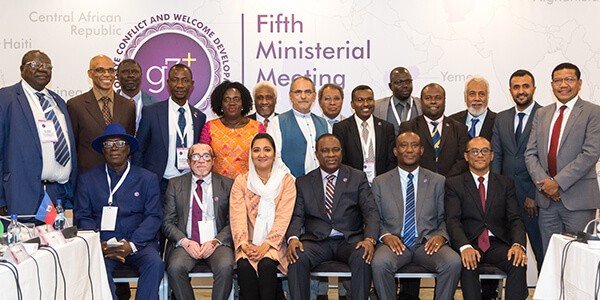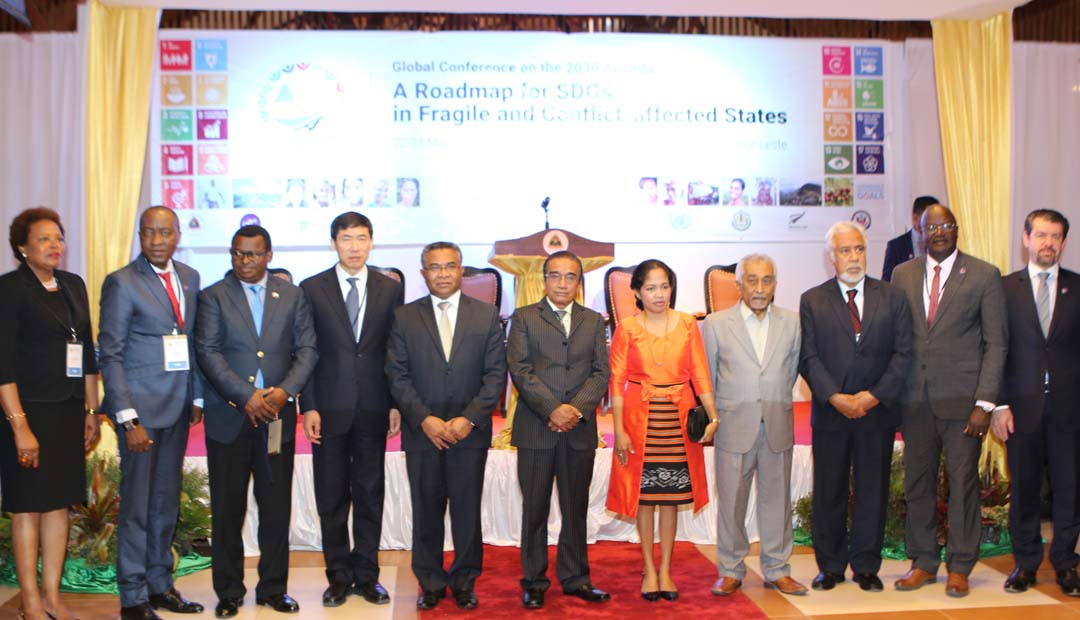MENUMENU
- Home
- Who We are

-
The g7+ is an intergovernmental organization made up of conflict-affected countries united by a vision of peace, stability, and development in their countries and everywhere in the world.
- What we do

-
The g7+ provides a platform to member countries to collectively advocate for better approaches of supporting peacebuilding and statebuilding efforts in countries affected by conflict and fragility.
- Resources
- Gallery
- Partnership

-
The g7+ develop a friendly relations and mutually beneficial dialogues, cooperation and works in partnership with a range of global actors to reform international engagement in member countries and redefine the narrative on state fragility.







